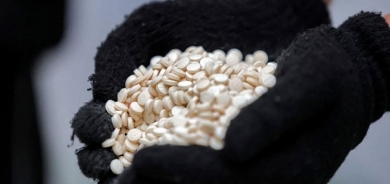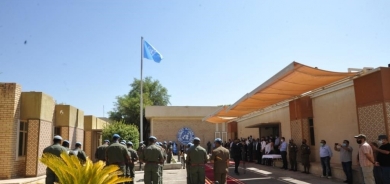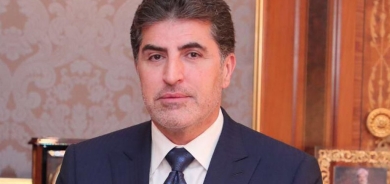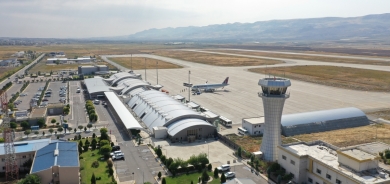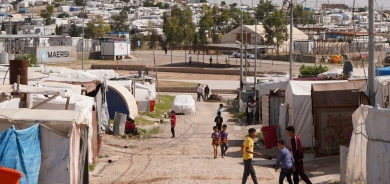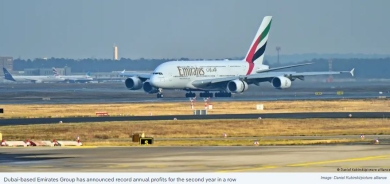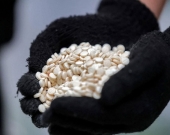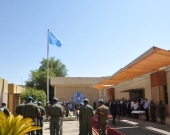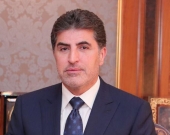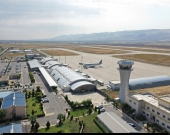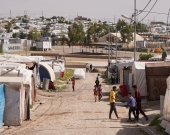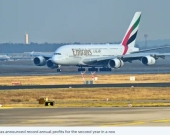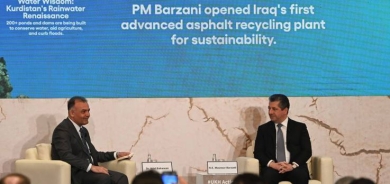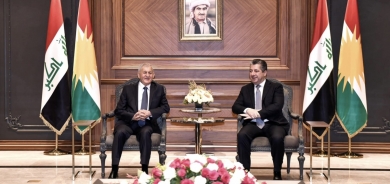Syrian rebels say gain ground as grip of army weakens
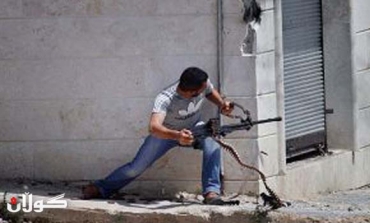
But his fortunes, and those of the armed resistance movement against President Bashar al-Assad’s rule, have changed dramatically in the last few weeks. Last month, Saaour celebrated repelling an army attack on the town of Kafr Karmin by setting a Russian-made army tank on fire.
“We took their anti-aircraft guns, the booty and left a dozen of their men dead,” said Saaour, 26, a former labourer who once earned a living in the port of Latakia.
Sixteen months after the uprising against Assad began, the battle between lightly armed rebels and the awesome firepower of the Syrian military – one of the largest standing armies in the Middle East – has become a war of attrition as defections weaken Assad’s forces and the rebels’ combat skills improve.
Saaour’s successes have been matched by broader rebel gains across the country in the last two weeks, as fighters seized several border posts and took the fight against Assad to the capital, Damascus, and to Aleppo, Syria’s biggest city.
It hasn’t all gone the rebels’ way though – government troops have since regained control over most of Damascus and were poised on Friday to launch a counter-attack in Aleppo after bringing in reinforcements from nearby provinces.
But while intense army shelling in the last few weeks has forced hundreds of Saaour’s comrades to retreat from towns within Idlib province and rural areas north of Aleppo, most of the countryside in northwest Syria is now outside the control of the overstretched military.
“We are now in control of most of the countryside around Idlib and the countryside north of Aleppo,” Saaour, one of hundreds of fighters who go back and forth across the border, told Reuters in a flat in the Turkish border city of Reyhanli.
Almost 70 percent of the large countryside towns in northwestern Syria that border Turkey – towns such as Maarat al-Nuaman, Sarmada, Maarat Nisreen, Kafar Takharim, Teftanaz and Binish – are in rebel hands, several Free Army commanders say.
In northern and western rural areas near Aleppo, the country’s largest city and commercial hub, the larger towns of Atareb, Darat Azeh, Anadan, Tel Rifat and scores of smaller villages have also fallen under rebel control.
That has left only the southern and eastern rural outskirts of the city of Aleppo still under the control of Assad’s forces.
“If it had not been for the shelling he would have no control at all over the countryside. The more losses on the ground, the more defections that weaken the army,” said Abu Omar, a young fighter from Idlib.
ARMY ON BACKFOOT
Only Harem, a pro-Assad Sunni Muslim border town, and the Shi’ite Muslim villages of Foua and Kfrya, 25 km (15 miles) from the border with Turkey, as well as parts of Jisr Shughur, now remain as isolated pro-army territory in the predominantly Sunni-populated Idlib province that borders Turkey, rebels say.
Subjected to more frequent attacks and roadside bombs, Assad’s battalions in the northwest have been increasingly confined to several large bases, including the main Mastuma army base, 4 km (2 miles) south of Idlib city.
The headquarters of the feared 46th battalion of the Republican Guard south of the restive town of Atareb, 15 km (10 miles) west of the Turkish border post of Reyhanli, has been the source of some of the heaviest artillery barrages, rebels say.
In the last two months, the army has even deserted checkpoints that used to seal off one county town from another after suffering losses from ambushes and landmines targeting army convoys on supply routes to Aleppo, Idlib and Homs.
One sophisticated operation last month saw the rebels briefly capture the strategic air base of Ghanto near the restive town of Rastan where they destroyed surface-to-air missiles.
Around the same time, a daring raid on the Jebel Sheikh Barakat mountain, almost 20 km (12 miles) northeast of Aleppo, saw rebels overrun a radar station, loot its contents, and kill its defenders. Last week, rebels also overran the main Bab al-Hawa crossing with Turkey, and two other border posts.
“The state’s authority has almost disappeared on the main international highway, all the way from Turkey to Homs,” said one Syrian business traveller who entered the crossing from Aleppo and gave his name as Barakat.
In the town of Anadan, 20 km (12 miles) north of Aleppo, fighters say they return at night to engage the army in hit-and-run attacks on checkpoints and nearby security compounds, even after the army forced them to retreat to nearby mountains.
“They don’t have control during the night and even during the day they cannot stay too long,” said Ibrahim Maatouk, 35, a local rebel commander, brought by rebels to a Turkish ambulance at the border and rushed to surgery for bullet wounds in the chest and left leg.
“They are shelling rebel-held countryside towns randomly as far as 30 km (20 miles) away from their bases. Their aim is to terrify locals and make people hate us and turn them against us but the effect is the opposite. The more they bombard us the more people get closer together and hate them,” he added.
BOLDER ATTACKS
Young fighters, many suffering shrapnel wounds and broken limbs, say months of gun battles have honed their combat skills.
“We did not have experience to lay explosives, or any coherent leadership … but this is now changing,” said Khaldoun al-Omar who arrived from Sarmada, 5 km (3 miles) from the Turkish border.
“The battles are looking more like warfare between two armies, even though they far outgun us,” he added.
Higher ranking officers who joined the rebels in June with rocket-propelled launchers looted from army depots in the village of Khan Sobol and Jabal al-Zawya helped bring much needed expertise to the poorly equipped force.
“Two months ago we would not be able to confront a tank. Now, we are able to and the captured ones have been hidden in the mountains for when the time comes to use them,” said Omar, who underwent six hours of surgery in Turkey for a leg wound.
Omar said hundreds of youths, many of whom already had military training as conscripts, were now getting more rigorous training in woodland areas along the long porous border in makeshift camps.
Young rebels were now also using more sophisticated improvised explosive devices against armoured vehicles that the Syrian army has used in battle against them.
Syrian official media have shown munitions they say have been confiscated from “armed terrorists”, in displays which officials say are further proof that foreign financed weapons are getting into the hands of rebels.
Although they are becoming bolder and more effective across large swathes of the countryside, fighters say a lack of anti-tank weapons, bullets and rocket-propelled grenades puts them at a disadvantage when attacking heavily fortified army bases.
Several months ago, rebels retreated from the city of Idlib, where attacks against the army by youths shouldering AK-47 rifles did little damage and resulted in massive tank and artillery retaliation, rebels say.
“We ran out of ammunition and we had to pull back, even though we could have held them back for weeks if we had had more,” said Abdul Rahman al-Sheikh, a brigade commander now operating in the plantations near Taftanaz, a restive town in Idlib province.
The army’s use of sophisticated transceivers in helicopters to track rebel communications has also helped pinpoint many rebel hideouts for aerial bombardment, said Anas Haj Hassan, a rebel fighter.
“They are getting the location from mobiles and walkie talkies we use to communicate to hit the building we are taking cover in,” said Hassan, who only survived an attack that killed five of his group by leaving the location half an hour before.
A young wounded fighter, who goes by the name of Abu Abdullah, 27, who had just arrived from the town of Saraqib, said lack of sufficient anti-tank weapons and RPGs was hindering further gains.
“Our weapons are still weak, we need much more, at least RPGs and anti-tank missiles that we are now mostly using. The Russian AK-47 no longer has a role in the fiercest battles we are now waging against Assad’s forces,” said Abu Abdullah, lying in a Turkish hospital bed a few kilometres away from the battleground inside Syria.
(Reporting by Suleiman Al-Khalidi; Editing by Andrew Osborn)
Source: Reuters

